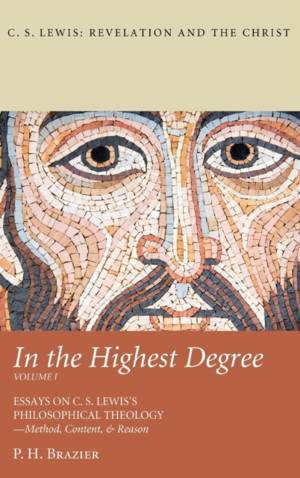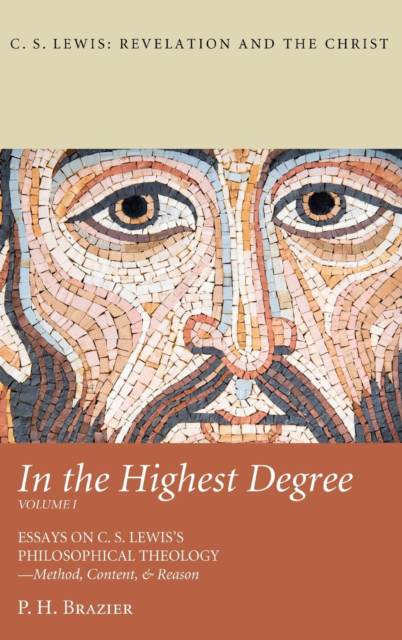
- Retrait gratuit dans votre magasin Club
- 7.000.000 titres dans notre catalogue
- Payer en toute sécurité
- Toujours un magasin près de chez vous
- Retrait gratuit dans votre magasin Club
- 7.000.0000 titres dans notre catalogue
- Payer en toute sécurité
- Toujours un magasin près de chez vous
In the Highest Degree: Volume One
Essays on C. S. Lewis's Philosophical Theology--Method, Content, & Reason
P H Brazier
76,45 €
+ 152 points
Format
Description
The theological and philosophical works of C. S. Lewis were grounded in the argument from reason. As such reason is a form of revelation that predates nature and relates to the divine: the Word of God, Christ the Logos. These essays provide some understanding of the essentials to Lewis's philosophical theology, that is, the essentia, "in the highest degree." Lewis's corpus can seem disparate, but here we find unity in his aims, objectives, and methodology, a consistency that demonstrates the deep roots of his philosophical theology in Scripture, in Greek philosophy, patristic and medieval theology, and in some of the Reformers, all framed by a reasoned discipline from a perceptive and critical mind: method and form; content and reason--for the glory of God. Here is the essentia of Lewis's thinking. From an analysis of reason, through a theoretically unified proposition for atonement, to the evidence of Christ as the light of the world across human endeavors and religions, to a doctrine of election, to an understanding of Scripture, to "the Philosophy of the Incarnation" (as Lewis termed it, ) through fundamental arguments with various modern/liberal theologians, we find evidence for the actuality of the incarnation: the divinity of Christ.
Spécifications
Parties prenantes
- Auteur(s) :
- Editeur:
Contenu
- Nombre de pages :
- 262
- Langue:
- Anglais
- Collection :
Caractéristiques
- EAN:
- 9781532651922
- Date de parution :
- 31-10-18
- Format:
- Livre relié
- Format numérique:
- Genaaid
- Dimensions :
- 152 mm x 229 mm
- Poids :
- 517 g

Les avis
Nous publions uniquement les avis qui respectent les conditions requises. Consultez nos conditions pour les avis.






